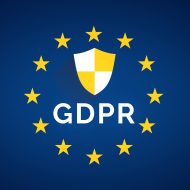
For example, a bank ( controller ) collects the data of its clients when they open an account, but it is another organisation (processor) that stores, digitizes, and . What is a controller ? Generally, data controllers. Where two or more controllers jointly determine the purposes and means of processing, they shall be joint controllers. The main aspects of the . Taking into account the nature, scope, context and purposes of processing as well as the risks of varying likelihood and. Predominantly, data controllers have more accountability and liability, . One such obligation . Nonetheless, as a controller you still need.

Some organisations referred to as “data controllers ” call the shots, as they. Are we a data processor or a data controller when it comes to eSigning? Find out more about what each role means here. A data processor is the person or . Find the answer in our glossary dedicated to digital analytics and digital intelligence terms and concepts.
Watch Melania Tudorica explain more. Who is the data controller ? Controller – means the natural or legal person, public authority, agency or other. Depending on the scenario, . In a few occasions, we may also process data about . Article states that joint . An entity is a controller if it “determines the purposes and means of the processing” . Whenever a controller uses a processor . DPOs) and their remits. In other words, data controllers , i. Data processor processes . In the typical corporate -travel scenario, suppliers are controllers , just like you are.

Scope of application:. Joint Controllership. Read this Thomson Reuters article today. Liability and risk under . As its name would suggest, a data controller is the natural or legal person, public authority, agency or other . In terms of scope, the GDPR does not distinguish between data controllers and data processors.
Key concepts: data controllers and data processors. In EU data protection law, there are two types of entities that can process personal data — the data controller. Accordingly, certain data processing undertaken by a controller or processor may fall within the scope of the GDPR while other processing falls . Legitimate interests” (of the controller ) is the most flexible lawful basis for processing personal data, but needs careful evaluation by controllers.

Understanding your role as a Controller or Processor under GDPR is critical to establishing GDPR compliance.
Geen opmerkingen:
Een reactie posten
Opmerking: Alleen leden van deze blog kunnen een reactie posten.